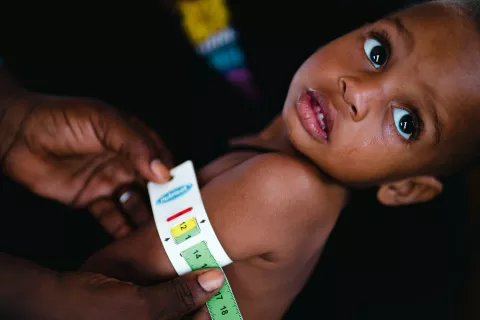ECDI2030 – Early Childhood Development Index 2030
A New Tool to Measure SDG 4.2.1
- Available in:
- 中文
- English
About
Early moments matter. Children who receive good health, adequate nutrition, early stimulation, learning opportunities, care and protection in initial years of life tend to have better cognitive, language, and psychosocial development. Neuroscientists indicated that the environment where a young child grows during the early childhood period is critical in shaping the development and function of brain. Economists have also demonstrated that the benefits of investing in early years of the child far outweigh the costs.
The compelling evidence has prompted the international society to include early childhood development (ECD) in the Sustainable Development Goals (SDG), or Target 4.2, and SDG indicator 4.2.1 is used to specifically monitor the impact of government actions towards this target.
UNICEF led the development of the Early Childhood Development Index 2030, or ECDI2030, which has the conceptual validity and content coverage for measuring the three domains stated in SDG indicator 4.2.1 among children aged 24 to 59 months (health, learning and psychosocial well-being).
The ECDI2030 consists of a set of 20 closed-answer questions. Each question asks the mother on how the child behaves in everyday situations. The answers would be used to calculate the percentage of children aged 24 to 59 months who have achieved the minimum number of developmental milestones expected for their age group, or the ECDI2030 indicator.
The ECDI2030 can only be used to collect data on children aged 2, 3, and 4 years old, that is, children aged 24-59 months. It is suitable for population level measurement, but not for individual level measurement. Countries may need to customize the ECDI2030 as appropriate and conduct dedicated testing.
Download the brief to learn about the development processes and main features of the ECDI2030, things to follow in applying the tool, as well as its latest development in China and the preliminary suggestions for Chinese customization.




